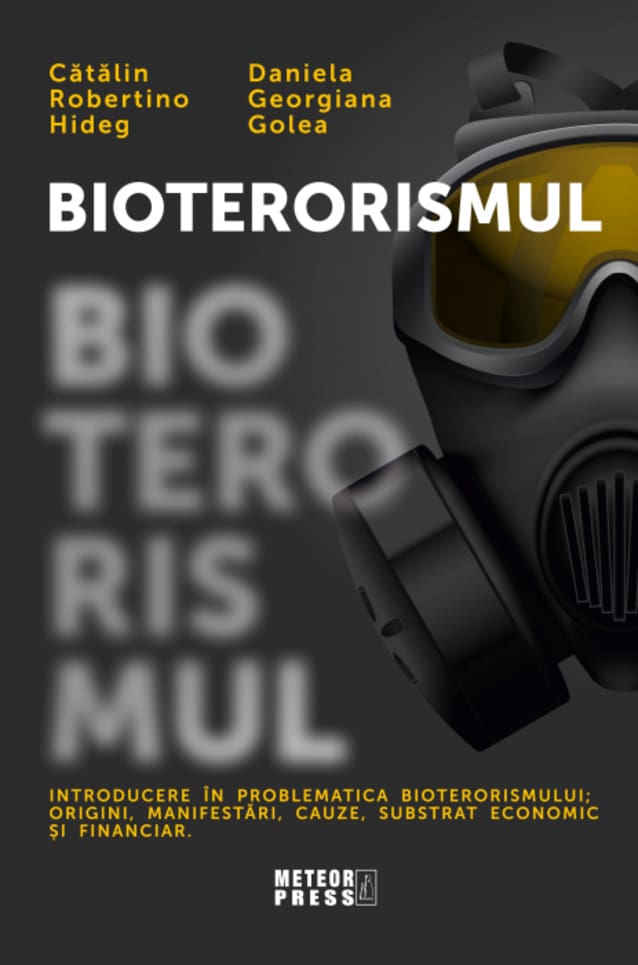Bioterorismul
About
This interdisciplinary work provides an in-depth introduction to the phenomenon of bioterrorism, examining its origins, manifestations, economic foundations, and strategic implications for national and global security. Against the backdrop of recent global health crises such as the COVID-19 pandemic, the authors analyze how biological threats—whether natural or engineered—can severely disrupt public health, economic systems, social stability, and national security.
Combining expertise from two fields—biomedical entrepreneurship and national security policy—Daniela Georgiana Golea, PHD, a specialist in national security development and digital transition, and Cătălin R. Hideg, a medical economist and biopharmaceutical innovator, offer a unique perspective on bioterrorism. Their approach addresses the complex interplay between advanced biotechnologies, public health systems, economic vulnerabilities, and corruption in the global medico-pharmaceutical market.
The volume explores the risks posed by hybrid threats and the proliferation of unconventional biological weapons, while also drawing attention to the financial and logistical infrastructures that may enable such threats. Through a multidisciplinary lens—spanning economics, security studies, and biomedical innovation—this book offers both critical analysis and forward-looking insight into one of the most pressing challenges of the 21st century.
Praise for this book
Bioterrorism, the scourge of the third millennium, poses significant threats to both national and global security. As demonstrated unequivocally during the SARS-CoV-2 pandemic, a public health crisis—whether of natural origin or caused by human intervention—can have far-reaching and incalculable consequences across multiple dimensions: societal, financial, economic, political, and strategic.
In this context, the present work represents the joint effort of a biomedical entrepreneur and a national security policy researcher, both with significant experience in their respective domains. Their collaboration has produced a compelling scientific contribution that is both relevant to academic circles and accessible to the general public.
The book adopts a multidisciplinary approach that is as original as it is necessary—analyzing bioterrorism not only from the perspective of health security but also from an economic-financial viewpoint, including the impact of corruption on the global medico-pharmaceutical market.
The fusion of two economists—each with distinct yet intersecting expertise in national security—has resulted in a particularly noteworthy contribution. Combining their backgrounds, the authors have embarked on an ambitious series of scientific works dedicated to the phenomenon of bioterrorism, aiming to both reflect its current state and anticipate future developments in the short and medium term.
This volume merges the entrepreneurial experience of a specialist in bio-pharmaceutical research and production with the academic insight of an economist focused on national security management.
The outcome is a highly relevant and innovative scientific work, one that approaches bioterrorism from an economic angle and places particular emphasis on the influence of corruption within the global medico-pharmaceutical sector.
